To add subtitles to an MKV video, follow these simple steps:
1. Install and run Movavi Video Converter.
2. Add your MKV video.
3. Select MKV as the output format.
4. Select the subtitles and launch the conversion.
How to Add Subtitles to MKV [Windows & Mac]
Those who prefer to watch movies in their original form often use subtitles. It’s much easier to understand what the characters are talking about if you can read their lines. Subtitles are usually stored in SRT format and can be encoded into the video. If a video doesn’t contain subtitles, you can download external subtitles and add an .srt file to your movie.
If you want to add subtitles to an MKV video, you need special software that can permanently merge a video with subtitles. Try Movavi Video Converter – it lets you add subtitles to a video and edit them, too.
How to add subtitles to an MKV video file in 5 steps
With Movavi Video Converter you can easily add subtitles to your video. If you haven’t downloaded the subtitles, you can search for them online directly from within the app. Download Movavi Video Converter for Windows or Mac and follow these simple steps to add SRT to MKV.
Step 1. Install and run the program
Download the file to your computer, launch it, and follow the installation instructions. Run the converter by double-clicking the icon.
Step 2. Add your MKV video
Now you need to import a video into the program. Hit Add Media in the upper-left corner of the app and select Add Video. Choose the video you need and click Open.
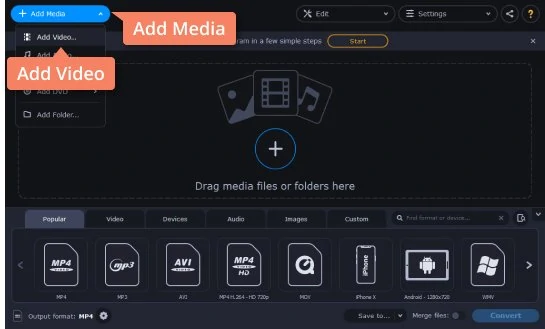
Step 3. Select MKV as the output format
In the row of tabs below, click Video. Then click MKV and select the desired preset.
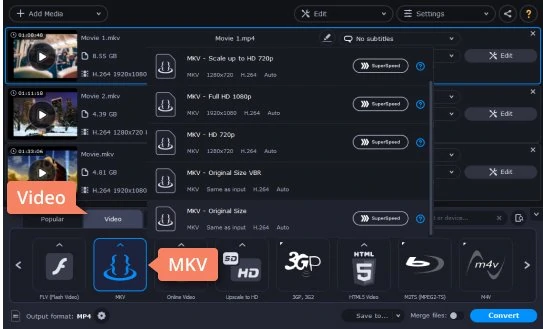
Step 4. Select the subtitles
Click No subtitles and hit Add. If you have the file with the subtitles on your computer, pick Choose file and select the subtitles you want to add.
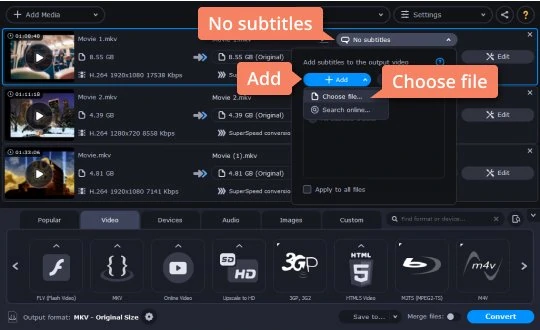
If you don’t have the subtitles for your movie yet, choose Search online. The file name will automatically appear in the search field. If it’s different from the movie title, clear the field and type the appropriate name. You can also choose the language of the subtitles. Now click Search. The program will show you a list of subtitles to choose from. Select the file you need and click Download and Add.

Now the subtitles are hardcoded into the movie and can’t be turned off. If you want to have the option to disable the subtitles, click Subtitles and pick All subtitle tracks.
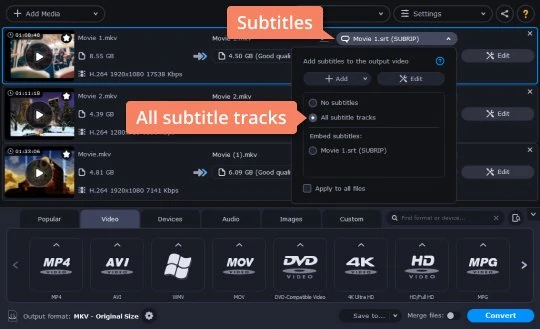
Step 5. Add SRT to MKV
Click Save to in the lower part of the program window and choose the destination folder. Hit Convert to merge the SRT with your MKV movie.
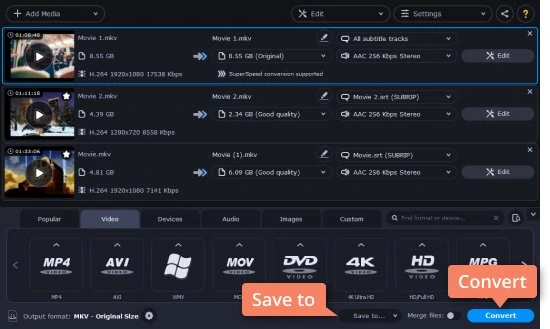
That’s all it takes to add subtitles to a movie! In addition to adding subtitles, Movavi Video Converter lets you convert between 180+ media formats and edit videos. The app also includes advanced tools for editing subtitles – read on to learn more.
How to edit MKV subtitles
Having subtitles in a movie is very handy. But subtitles are not always perfect – they might be an inappropriate size or color, which can spoil your experience. It’s hard to enjoy a movie if the subtitles are too small for easy reading. And of course, it’s extremely annoying if the text doesn’t appear at the right time. Luckily, all these problems can be easily solved with an MKV subtitles editor. Try Movavi Video Converter – you can use it not only to add subtitles to a movie, but also to edit them. The guide below describes how to edit MKV subtitles.
Step 1. Install and launch the converter
Download the file and launch it. Then follow the installation instructions and run the program.
Step 2. Add the video to the program
Hit Add Media and pick Add Video. Select the necessary video and click Open.
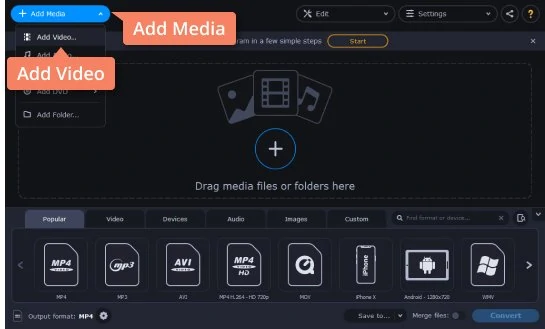
Step 3. Select MKV as the target format
Open the Video tab, pick MKV, and select the desired preset from the list.
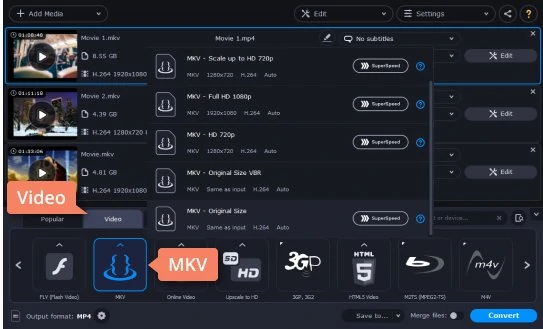
Step 4. Add subtitles
To merge MKV with subtitles, click the Edit button.
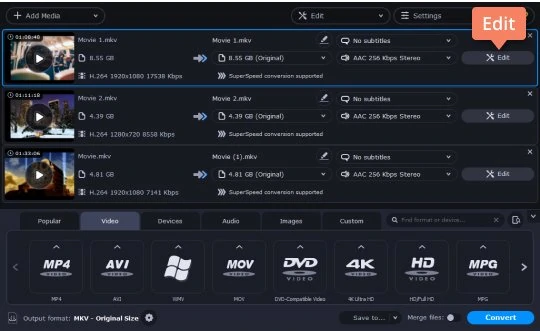
In the new window, select the Subtitles tab and hit Add. If you have an .srt file on your computer, click Choose file and select the subtitles.

If you don’t have the necessary subtitle file, choose Search online and click Search. Choose the subtitle file from the list that appears in the dialog box and click Download and Add.
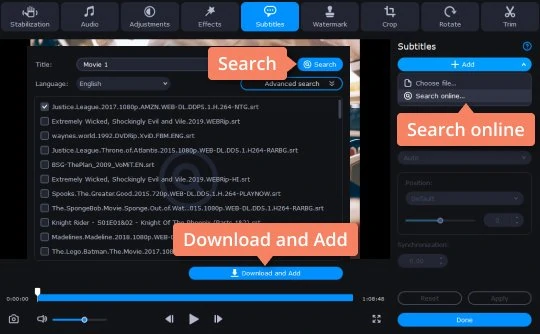
Step 5. Change the appearance of the subtitles
To edit the font, click the Font Settings button. In the window that opens, you can choose another font from the list in the Font column. In the Font style column, you can choose the appropriate option to make the text bold or italic. If you want to make the subtitles larger or smaller, pick the suitable value from the Size column. Hit OK at the bottom of the dialog box.
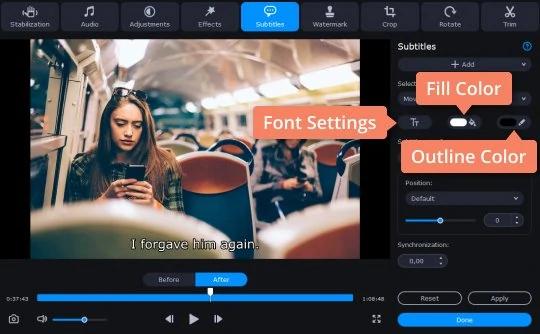
To change the position of the subtitles on the screen, go to the Position section and open the drop-down list. You can place the subtitles in the middle, top, or bottom of the screen, and also move them to the right or left. Select the option you like best.
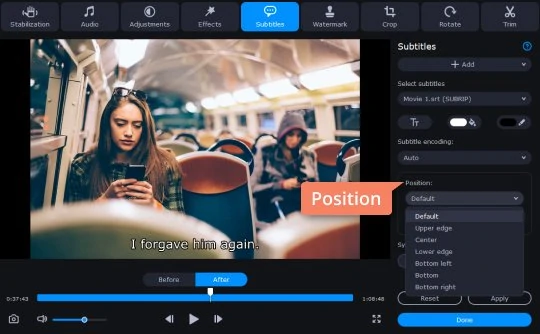
Step 6. Adjust the synchronization
Sometimes subtitles are not synchronized with the speech and appear earlier or later than they should. To fix this, change the value in the Synchronization area. If the subtitles are delayed, click the lower arrow; if they appear too soon, click the upper arrow and set the appropriate value.
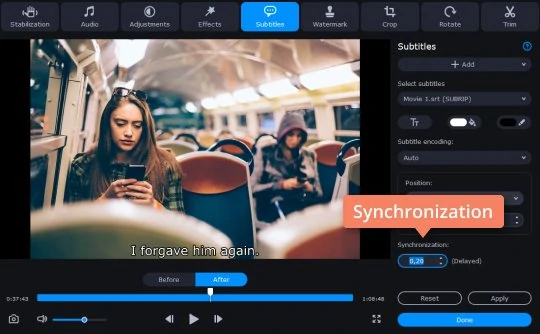
Step 7. Apply the changes
When all the necessary changes have been made, click Apply. Next, click Done to close the editing window.
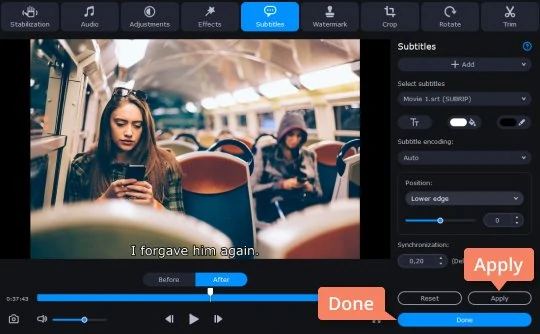
Step 8. Save the result
Click Save to and choose the folder where you would like to save the video. Hit Convert and wait until the process is complete.

Subtitles are handy in many different situations:
Movavi Video Converter
The ideal way to get your media in the format you need!
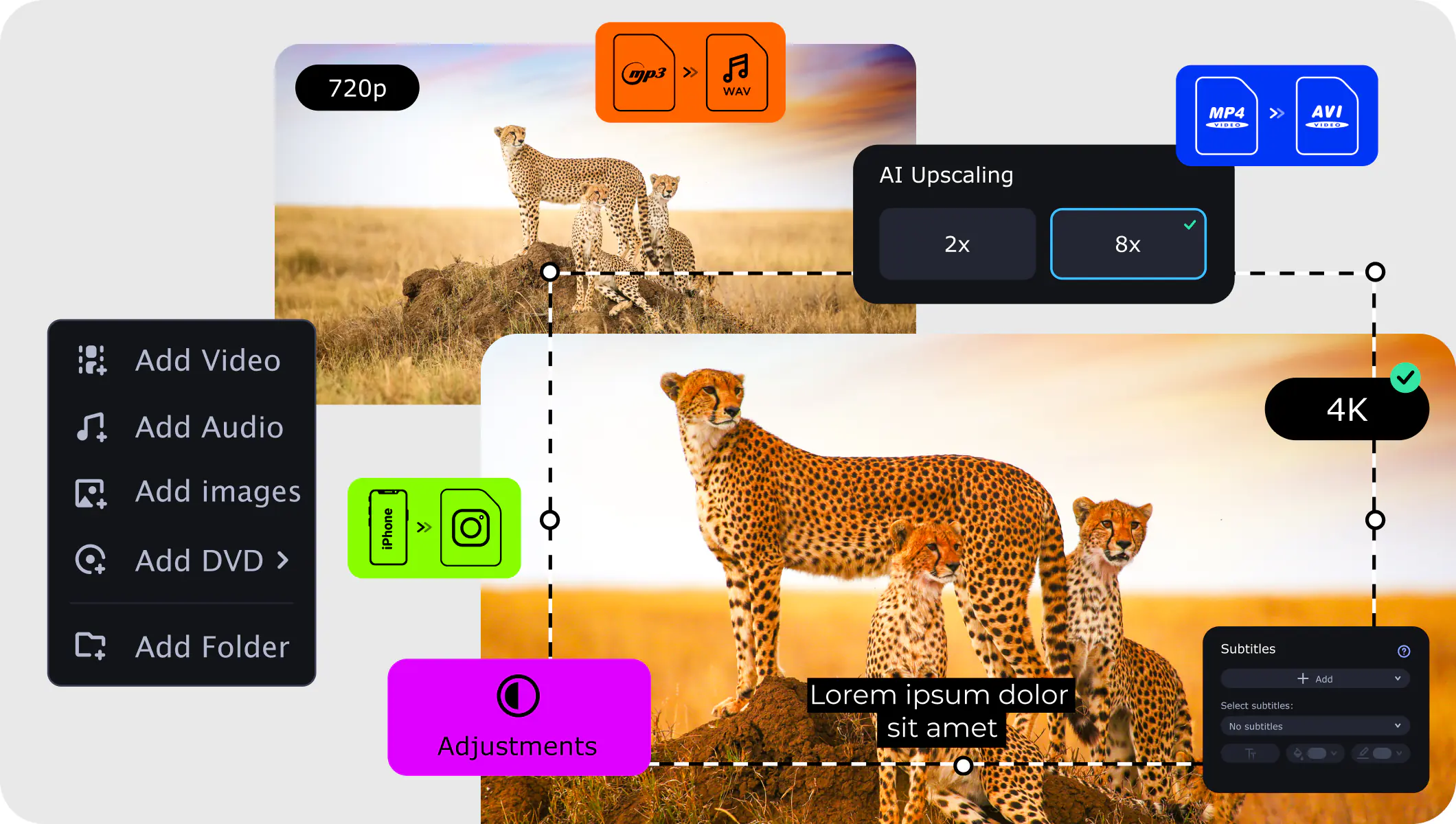
See other useful how-to guides

Have questions?
Join for how-to guides, speсial offers, and app tips!
1.5М+ users already subscribed to our newsletter